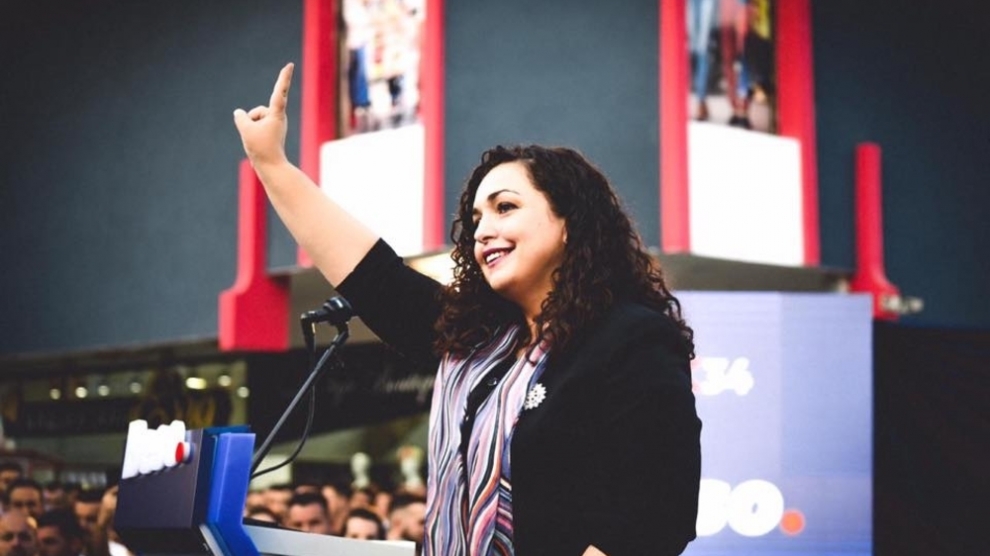Kosovo heads for the polls on October 6 in a parliamentary election which could bring about major changes to the country’s political system.
The snap election was triggered when Kosovo’s prime minister, Ramush Haradinaj, was forced to resign after a war crimes court in The Hague summoned him for questioning as a suspect over his role in the 1998-99 insurgency against Serbia.
Unhappy with the widespread corruption of the ruling coalition dominated by Mr Haradinaj’s Alliance for the Future of Kosovo (AAK) and the Democratic Party of Kosovo (PDK), voters look set to turn in large numbers to the two main opposition parties: the centre-right Democratic League of Kosovo (LDK) and the nationalist, left-leaning Vetevendosje.
Vetevendosje won the most seats in the 2017 parliamentary election, but failed to form a coalition.
This time, a coalition between Vetevendosje and the LDK is currently the most likely outcome, with the LDK’s leader, Vjosa Osmani (pictured above), a 37-year-old US-educated law professor, favourite to be the country’s next prime minister. She would be the first woman to hold the post, and would also be the youngest prime minister since Kosovo declared independence in 2008.
Osmani has said that she believes Kosovars are ready to be led by a woman for the first time.
“In more than 90 per cent of cases it is men who are involved in corruption. A woman sees the state and how to take care of our citizens completely differently,” she told the news agency Reuters.
On the campaign trail she has been equally forthright.
“We will remove from power those who have strangled Kosovo,” she told supporters at a recent campaign event. “My political opponents are afraid of the big change we will bring on October 6.”
Whoever emerges as the country’s new prime minister will need to make a priority of kick-starting stalled talks with Serbia, which continues to view Kosovo as part of its territory. Last year, the government in Prishtina imposed a 100 per cent tax on Serbian imports which it says will only be removed once Belgrade recognises Kosovo as a sovereign state.
—
Photo: Vjosa Osmani official Facebook page.

